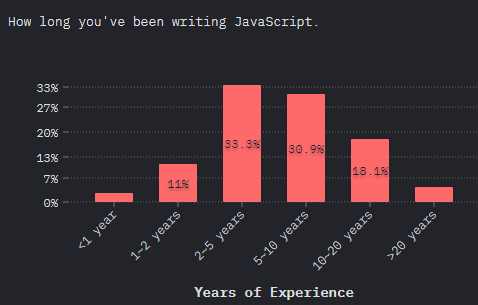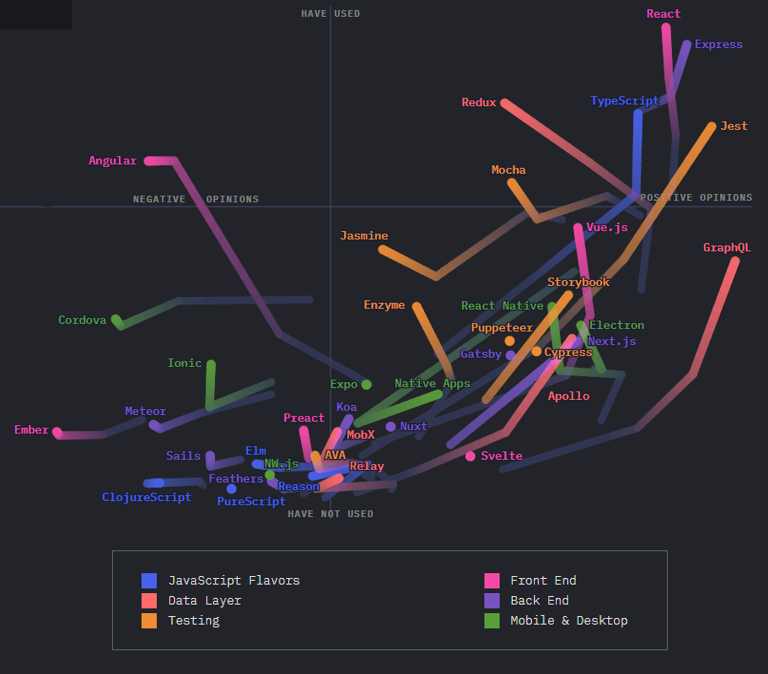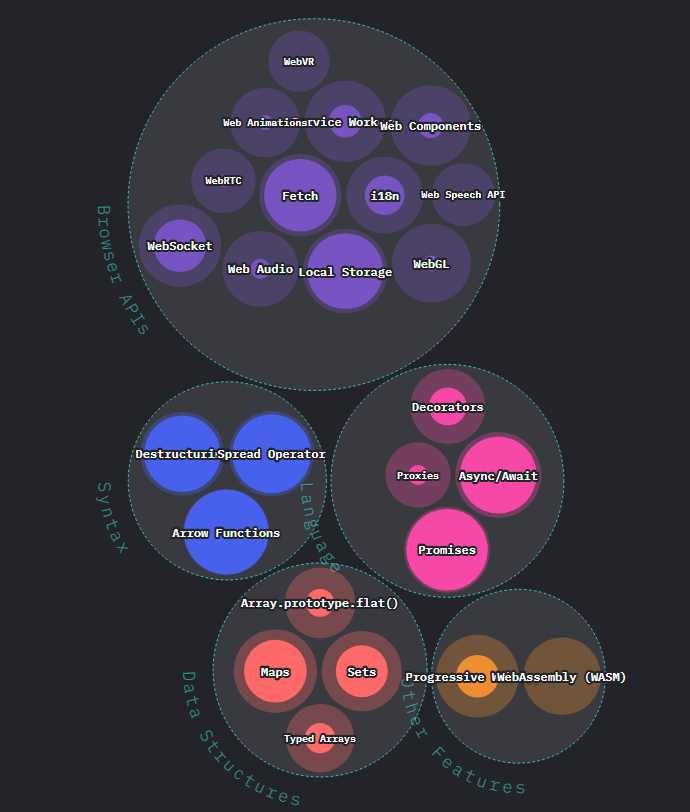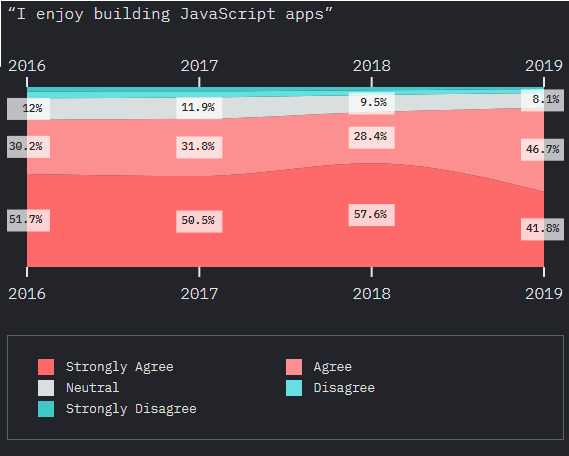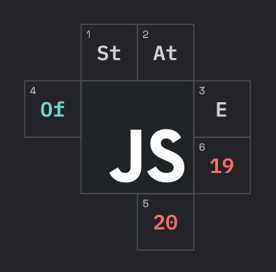| JavaScript Still Worth A Survey |
| Written by Ian Elliot | |||
| Wednesday, 01 January 2020 | |||
|
Over its 24-year history JavaScript has become a multi-purpose language and has accreted a complex ecosystem of frameworks, libraries and tools. The annual State of JavaScript Survey is an attempt to identify the latest trends and to gauge overall satisfaction with it. This is the fourth year in which JavaScript developers Sacha Greif and Raphaël Benitte have conducted a survey to provide a comprehensive look at the JavaScript landscape. For the 2019 survey responses were received from 21,717 developers, over half of them with at least five years experience of writing JavaScript: This year's report benefits from the involvement of Amelia Wattenberger as a "guest dataviz expert" who produced an graphic summarizing the changes over time in respondents' opinions of the technologies included in the survey. To understand what it reveals you need to know that the lines go from 2016 to 2019 (the brighter end where the label is shown) A point means that the technology was only introduced in 2019. A higher point means that a technology has been used by more people and a point further to the right reflects popularity - more users who have used it would use it again or more people want to learn it. The visualization is interactive in that you can isolate a specific color-coded category - pink for Front End frameworks for example - and home in on a specific technolgy by clicking on its label. So we can see that the use of React (which is the most used technology in the survey with 16,099 users) has increased while it popularity has been pretty steady while Angular's popularity reduced as its adoption grew and over the last year people became more even negative towards it. When it comes to flavors of JavaScript, few people have used or wanted to use ClosureScript, Elm fared slightly better in terms of take up but lost what little interest there had been initially faded. Reason saw a jacknife reaction - introduced and almost unknown in 2017, increased adoption and increased interest in 2018, and then reduced adoption and reduced interest in 2019. It is TypeScript that is the successful JavaScript flavor, showing both increased adoption and greater positivity in successive surveys. JavaScript is a huge language with a lot of features. New in this year's report is a graphic which gives an overview of the awareness of features and the usage of features grouped by categories. The bigger the circle the more respondents are aware of it and the bigger the proportion that is bright the greater the usage. The most adopted JavaScript feature is Arrow Functions, known about by 20,791 respondents and used by 20,336 of them, a 97.8% adoption rate. Promises, known about by 20,543 respondents has the next highest adoption rate - 94.8% followed by the Spread Operator used by 92.3% of the 20,283 respondents who know about it. Proxies is a language feature that is under-regarded and underused, being known about by only 11,856 respondents and used by only 30.4%. Not every developer nedds data structures so the findings that Array.prototype.flat () and Typed Arrays go under the radar for over a third of respondents isn't too worrying. Similarly the fact that the usage ratio of WebAssembly is only 8.6% of 16,694 who are aware of it is not at all surprising given how difficult its learning curve and the general lack of tools and support for it. Another area where there is a case for greater attention is WebGL. Currently only 19.6% of the 17,349 respondents who are aware of it use it. WebGL graphics isn't for everyone but surely more than just 20% could benefit from using it? The report concludes with some general opinions about JavaScript. The most positive finding was with regard to enjoyment. Almost 90% of respondents agreed or strongly agreed with the statement "I enjoy building JavaScript apps. " A similar pattern - with a decline in the number opting for Strongly Agree after a high in 2018 was given for the statement "JavaScript is moving in the right direction" with over 80% agreeing and only 4% disagreeing. So all is well in the land of JavaScript.
More InformationRelated ArticlesSurvey Reveals JavaScript Trends JavaScript Ecosystem Under Scrutiny JavaScript Bitmap Graphics with Canvas (I/O Press) To be informed about new articles on I Programmer, sign up for our weekly newsletter, subscribe to the RSS feed and follow us on Twitter, Facebook or Linkedin.
Comments
or email your comment to: comments@i-programmer.info
|
|||
| Last Updated ( Wednesday, 01 January 2020 ) |

